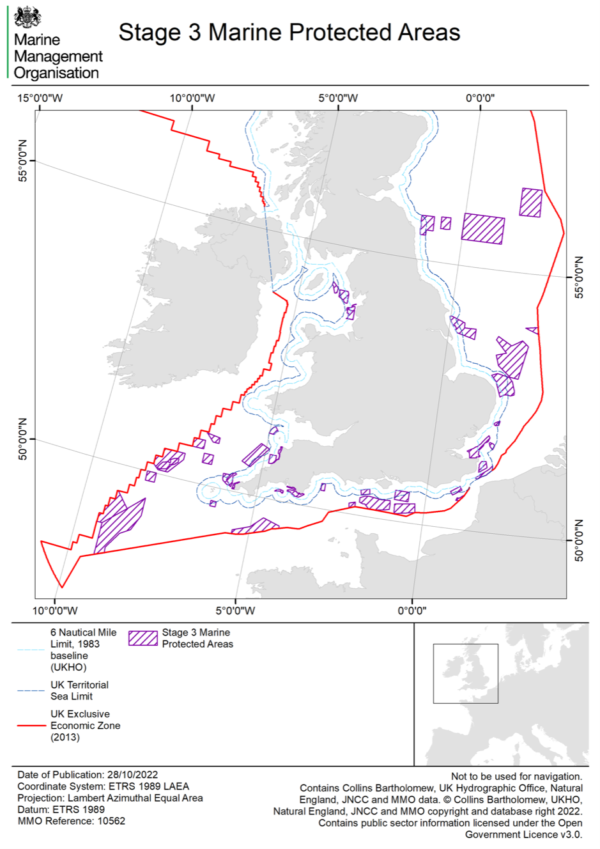Last week we covered the story of the Marine Management Organisation (MMO) launching a consultation on a proposed byelaw to ban bottom-towed gear in 13 MPAs to protect marine ecosystems in England.
The area covered is over 4,000 km2 and combined with existing MMO byelaws, this will bring the total area protected from bottom-towed gear by MMO byelaws to almost 18,000 km2.
The announcement is part of the delivery of a programme to protect all 40 English offshore MPAs from harmful fishing activity by 2024, with byelaws already in place in sites including Dogger Bank and The Canyons.
The Defra Secretary of State said “[the] plans will deliver more crucial safeguards for vital biodiversity and help restore England’s marine ecosystems”.
Response to Government announcement
The statement was met with a lukewarm response from many environmental NGOs as well as fishing industry representatives.
Greenpeace said in a news release that: ‘While steps to manage fishing in Marine Protected Areas are welcome, Greenpeace campaigners say the consultation process is too sluggish and cumbersome to match the urgency of the oceans crisis. The government’s approach to reef protection doesn’t go far enough, as they’re not proposing site-wide bans and therefore don’t address the damage caused to the whole ecosystem by other forms of industrial fishing.’
Hugo Tagholm, Oceana Executive Director, welcomed the proposed bylaws but expressed concern that most failed to protect the entire MPA, the Guardian reported. Oceana has warned the government that issuing licences permitting bottom trawling could be unlawful.
Jean-Luc Solandt, at the Marine Conservation Society, said the measures were “important progress” for some biodiversity but that “it is not enough”.
NFFO raise concerns
The National Federation of Fishermen’s Organisations (NFFO) has cautioned any proposals to restrict access to fishing crews could affect fish supply.
“Our principal concern is that the government hasn’t addressed our concerns about the cumulative impact of the scale of potential displacement of fishing activities, arising mainly from MPAs and the expansion of offshore wind,” said Barrie Deas, CEO of the NFFO, speaking to The Grocer.
“Until there is a comprehensive cross-government policy framework to deal with displacement, it seems misconceived to proceed with expanding the MPA network on an incoherent ad hoc basis.”
“There needs to be a balance between protecting vulnerable habitats and species, protecting coastal communities and providing food security,” added Deas. “There is no such policy framework in place.”
Further information and resources:
